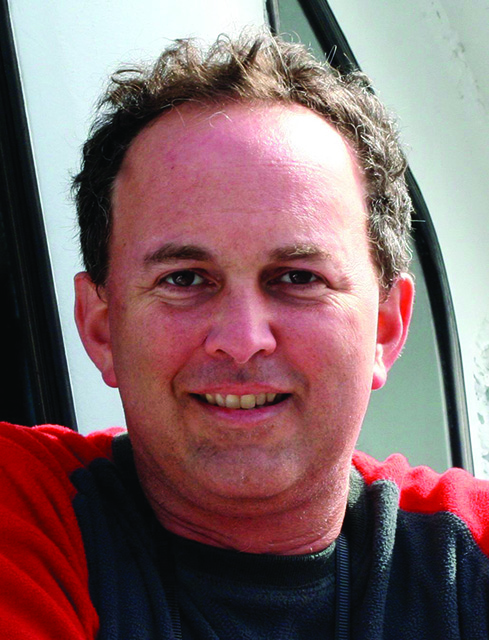Percy Sutton: Hard Work Led to Major Rewards
Broadcasters' Foundation Golden Mike Award
When they write the book on Percy Sutton's life, his founding and nurturing of Inner City Broadcasting (ICB) may take up just one chapter. After all, this guy was a Tuskegee Airman, a Freedom Rider, Malcolm X's lawyer, the head of cable companies in New York and Philadelphia, and a Manhattan borough president. And that's probably not even half of his biography. He is now starting a new career, heading up a high-tech company he plans to take public in 2006.
“Percy Sutton started it all,” says Alfred Liggins, CEO of Radio One, now the largest black-owned radio-station group in the nation. “We at Radio One aspired to emulate Percy and Inner City Broadcasting, as did any black broadcaster of any size and scale.”
That, in short, explains why Sutton, who turns 85 this year, and his entire Inner City Broadcasting family (including his son, Pierre, who now runs the company, which owns nine AM and seven FM stations) are being honored with the Broadcasters' Foundation Golden Mike Award on Feb. 28 in a black-tie fundraiser at Manhattan's Plaza Hotel.
“He was a groundbreaker in the No. 1 media market,” says Gordon Hastings, CEO of the foundation, which distributes money to industry employees facing personal financial crises (see story below). “And while we talk in the radio and television business about our commitment to local communities, here is an individual whose résumé—in terms of service to the community—no one can match.”
Sutton devotes much of his energy these days running Synematics Inc., a high-tech software/hardware company, but broadcasting has always been close to his heart.
BIG DREAMS
As the youngest of 15 children living on a farm just outside San Antonio, Sutton used to hold a corn cob to his mouth and state, in his best radio voice, “Ladies and gentlemen, this is Percy Sutton from high in the clouds in the Smith/Youngtown building,” referring to a local “skyscraper” that housed a radio station—and that Sutton, as an African-American, could not even enter.
Broadcasting & Cable Newsletter
The smarter way to stay on top of broadcasting and cable industry. Sign up below
But while prejudice was a fact of life as he grew up, it couldn't dampen his motivation and inspiration to dream big. That came from his father, who was born before the Emancipation Proclamation and became a school principal and undertaker. The Suttons also ran numerous local businesses, putting Percy and his siblings to work—hard work.
For pleasure in his spare time, Sutton, whose willingness to take chances proved crucial to his later success, learned stunt flying. “I have been a risk-taker all my life,” he says.
During World War II, Sutton served as a combat intelligence officer with the Tuskegee Airmen, the all-black combat unit that distinguished itself for its toughness. After the war, he worked his way through college and law school, at one point simultaneously juggling jobs in the post office, as a train conductor and as a waiter. Sutton plunged into the civil-rights movement. He headed New York's branch of the NAACP, joined the Freedom Riders, provided counsel for Malcolm X and got involved in New York politics.
But he never let go of his dream to be in broadcasting. He got on the air on WLIB New York by working for nothing, but he soon realized that “I'd be better off owning the station.”
NO E-Z CREDIT
During the 1960s, Sutton says, he went to dozens of banking institutions looking for backing to start Inner City Broadcasting. Even after he bought WLIB, he ran into doubters on his home turf. When he looked for investors among his black associates, he recalls, “only two believed in me and invested in the company.” But Sutton believed in himself: “I knew I had a talent for hiring the right people, and I knew how to make money.” He has since donated ICB stock to charity but has not sold any outside his family.
The company eventually expanded from New York, adding stations nationwide.
Sutton also learned how to deal with defeat. He says he poured $31 million of his family's money into trying to revive Harlem's famed Apollo Theater, with mixed results. The Showtime at the Apollo TV program was originally rejected by every white station owner outside of New York because they'd never heard of the theater, Sutton says. He eventually built up the syndicated program, only to become embroiled in controversies over both the theater itself and the rights to syndicate the show, which ICB lost in recent years.
Sutton says he has learned two things: to never look back and that optimism about the future is essential to success. “Don't cry for yourself and don't worry about the indignities of the past,” he says. “You have to understand history, but you always have to be forward-looking.”
Stuart Miller has been writing about television for 30 years since he first joined Variety as a staff writer. He has written about television for The New York Times, The Washington Post, the Los Angeles Times, The Guardian, The Boston Globe, Newsweek, Vulture and numerous other publications.

